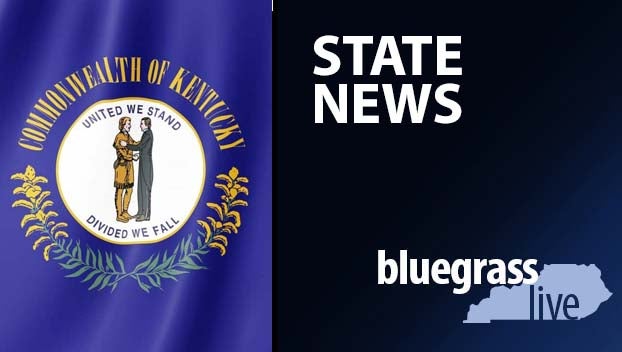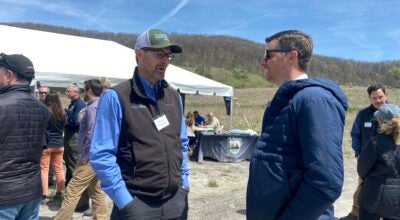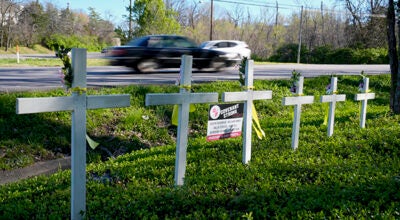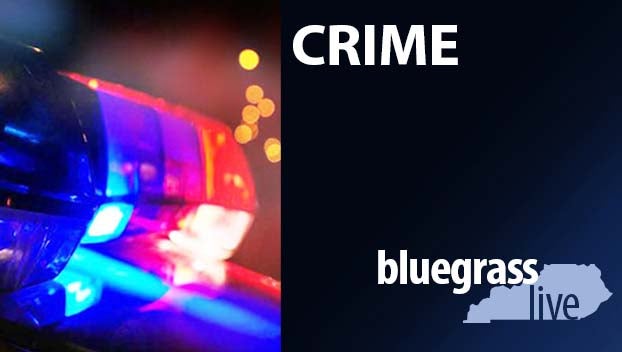More Kentucky schools extend mask mandates; one district mourns teacher who died of COVID-19
Published 8:50 pm Wednesday, September 15, 2021
More than three-fourths of Kentucky’s school districts have extended mask requirements as one school system mourned the coronavirus-related death of a teacher Wednesday and the state reported its fourth-highest daily total of COVID-19 cases.
The state’s virus-related death toll rose by another 49 and included people as young as 32 and 33, Gov. Andy Beshear announced. In his latest plea for Kentuckians to get vaccinated, he warned the fast-spreading delta variant “can come for you,” regardless of age or health status.
A south-central Kentucky district announced that a teacher died as a result of “complications from COVID-19.” The Caverna Independent School District, in a social media post, said it suffered a “devastating loss” with the death of high school math teacher Amanda Nutt.
By late Wednesday afternoon, 130 of the state’s 171 public school districts had opted to continue requiring masks in schools, according to the Kentucky School Boards Association.
Kentucky’s Republican-led legislature last week empowered school boards with setting masking policies in their districts. The legislature voted to scrap a statewide mask mandate for public schools. As a result, the statewide mask mandate approved by the state school board ends Friday.
Beshear has exhorted school leaders to maintain mask-wearing policies, calling it the “one right answer” to protect students and staff and keep schools open. The Democratic governor used mask mandates to combat past surges, but lawmakers blocked his ability to take such unilateral action.
Kentucky has become a national virus hotspot with one of the highest rates of new cases as the fast-spreading delta variant has caused rising hospitalizations among virus patients.
The state on Wednesday reported 5,398 new virus cases, including 1,530 cases among Kentuckians 18 and younger. The state’s virus-related death toll surpassed 8,140. Nearly 2,500 virus patients are hospitalized, and almost 91% of the state’s ICU beds are occupied, the state reported.
School-age children are contracting the virus at a higher rate than any other age group in Kentucky, while the statewide vaccination rate among 12- to 17-year-olds is the lowest of any age group.
The Caverna Independent district became the latest school system to suffer the virus-related death of a staff member. Nutt wasn’t vaccinated and tested positive for COVID-19 the weekend before the school term began in late August, Caverna High School Principal Chris Crain said Wednesday.
Nutt was “loved and cherished by her students, and she always wanted the best for them,” Crain said in a phone interview.
The Caverna school board decided Tuesday to continue requiring that masks be worn in schools, regardless of vaccination status. The district said masks will be required as long as the county remains in the high-incidence “red zone” for virus cases and until it’s out of “red” for at least seven consecutive days. At that point, the issue will be revisited.
Lee County schools, which had two staff members die from COVID-19, also announced Wednesday it would keep its universal masking policy for the time being. The eastern Kentucky district will reconsider the rule in October, with the hope of changing the policy if the county were to move out of the “red zone,” Lee County schools Superintendent Sarah Wasson said. The local school board voted Tuesday to maintain universal masking.
“We are in a time right now when incidence rates are high and universal masking is helping us maintain in-person learning,” Wasson said in a letter posted to social media.
Meanwhile, in response to supply shortages of monoclonal antibody treatments, state governments will now supervise the distribution of a capped number of treatments delivered to them each week, Beshear said Tuesday. Kentucky health care providers will no longer be able to order the treatments directly.
“I have a concern that some Kentuckians who are hesitant about the vaccine are placing faith in monoclonal antibodies,” Beshear said. “That thing you’re counting on might not be available. What is available, and there are no supply issues at all, are these safe and effective vaccines.”
Dr. Steven Stack, Kentucky’s public health commissioner, explained that while the treatments offer a temporary immune boost, they do not teach a patient’s body how to create its own antibodies like the vaccines.
“It’s a lot easier to get vaccinated than to get monoclonal antibodies,” Stack added.






